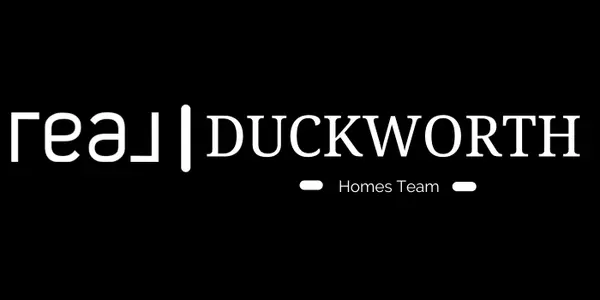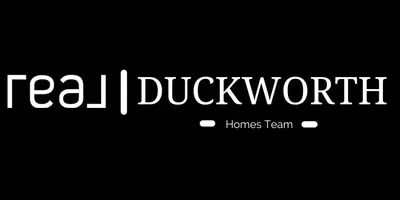10 Essentials for Buying a House

Purchasing a home is a significant milestone, and whether you're seeking to buy a home in Massachusetts or buy a home in Rhode Island there are essential steps and considerations to keep in mind. The decision to embark on the homeownership journey is both thrilling and substantial, but with the right guidance, it can become a less daunting process. In this article, we will explore the ten crucial elements you need to buy a house.
1. Establish a Home Buying Budget
Determining your budget is the initial step when purchasing a home in Wrentham. It's crucial to calculate the total expenses, including the down payment, anticipated closing costs, and monthly mortgage payments. Setting a realistic budget ensures you stay within your financial comfort zone throughout the process.
Buying a home can vary in cost depending on factors like the location within the town, the size of the property, and its condition. You may also need to consider potential renovations or updates, which could impact your budget. It's advisable to consult with a financial advisor to create a comprehensive budget that accounts for all these factors.

2. Secure Mortgage Pre-Approval
Obtaining mortgage pre-approval is essential to understand how much you can afford and accelerates the buying process. It involves submitting your financial information, credit history, and employment details to a lender who will then provide you with an approximate loan amount. This crucial step differentiates pre-approval from pre-qualification, as it involves a comprehensive financial assessment.
When seeking pre-approval, you can approach various local and national lenders. Each may offer different terms and rates, so it's essential to compare multiple options to find the best fit for your financial situation. Pre-approval not only helps you determine your budget but also signals to sellers that you are a serious buyer, increasing your chances of having your offers accepted.
3. Down Payment
A down payment is a percentage of the home's purchase price paid upfront in cash. While the typical recommendation is a 20% down payment, various mortgage options, including VA and USDA loans, allow for lower percentages. Your down payment choice affects interest rates, fees, and equity in the home.
Massachusetts and Rhode Island offers a diverse range of housing options, from cozy single-family homes to larger estates. The down payment amount you need will depend on the property's price and your chosen mortgage type. While a 20% down payment can help you avoid private mortgage insurance (PMI), which adds to your monthly costs, there are options to put down as little as 3% or 5% if you qualify. However, consider your long-term financial goals when deciding on your down payment amount, as it can impact your monthly payments and overall homeownership experience.

4. Maintain a Decent Credit Score
A strong credit score increases your chances of mortgage approval and better terms. Lenders assess your payment history, types of credit, outstanding debts, credit history length, and recent credit activity. Avoid opening new lines of credit or making substantial purchases during the home-buying process, as it may impact your credit score.
Your credit score plays a crucial role in determining your mortgage eligibility. A higher credit score not only makes it easier to secure a mortgage but also allows you to qualify for lower interest rates, potentially saving you thousands of dollars over the life of your loan. Regularly monitor your credit score and address any discrepancies or issues to ensure you present the strongest financial profile when applying for a mortgage.

5. Choose a Mortgage Lender
Selecting the right mortgage lender is essential. You can work with various types, including direct lenders, mortgage brokers, and online companies. Each has its advantages and considerations, such as fees, terms, and rates, so it's advisable to compare multiple options before making a decision.
You'll find a mix of local and national lenders, each offering a range of mortgage products. When choosing a lender, consider factors such as the interest rate, loan origination fees, and the level of customer service they provide. Meeting with lenders, asking questions, and getting loan estimates can help you make an informed decision and secure a mortgage that aligns with your financial goals.
6. Partner with a Real Estate Agent
A reliable real estate agent, or buyer's agent, can streamline your home search and provide valuable guidance. They help with pre-qualification, identify suitable properties, and handle the negotiation process. Their expertise ensures you make informed decisions and avoid overpaying for your new home.
In Massachusetts and Rhode Island, where the real estate market can be competitive, having a knowledgeable agent by your side is invaluable. They have access to local market trends and listings, allowing them to match your preferences with available properties. Additionally, a buyer's agent can assist with important details, such as understanding property values in different neighborhoods, navigating the inspection and negotiation processes, and ensuring you're well-prepared for the complexities of the local market.

7. Schedule a Home Inspection
After your offer is accepted, schedule a home inspection to assess the property's condition. While inspectors primarily conduct visual examinations, it's essential to accompany them and perform your own thorough inspection. Look for signs of issues like mold, water damage, pests, or foundation problems.
Massachusetts and Rhode Island homes offer a range of architectural styles and ages, and an inspection is crucial to uncover any hidden defects or necessary repairs. During the inspection, focus on key areas, including the attic and roof, heating and cooling systems, plumbing, electrical systems, and walls. Additionally, examine the property room by room to ensure you identify any potential issues.
8. Secure Homeowners Insurance
Homeowners insurance is a requirement to protect your investment in case of disasters like fire or flooding. Lenders typically mandate this insurance, and your real estate agent can recommend insurance agents in Wrentham who specialize in homeowners' policies.
Your homeowners insurance policy should provide adequate coverage for the unique risks associated with the area, including weather-related events common in New England. Consult with an insurance agent who understands the local market and can tailor a policy to suit your property and needs. Ensure your policy not only covers your home's structure but also your personal belongings and liability in case of accidents on your property.
9. Consult a Real Estate Attorney
In the state of Massachusetts and the state of Rhode Island, a real estate attorney is essential for closing on your home. They review sales contracts, conduct title searches, and ensure all terms are met. Your attorney will also inform you of the funds needed at closing and handle the closing process.
While real estate transactions may involve specific legal requirements, having a local attorney who specializes in real estate can provide peace of mind. Your attorney's role extends to safeguarding your interests throughout the transaction, including addressing any legal or contractual issues that may arise. They also ensure the property's title is clear of any liens or encumbrances, allowing you to take ownership with confidence.
10. Choose a Trustworthy Moving Company
Selecting a reliable moving company is crucial for a smooth transition to your new home in Wrentham. Seek recommendations from your real estate agent, read online reviews, and ensure the company is licensed, insured, and part of a national moving network if necessary for long-distance moves.
The moving process can vary depending on your specific needs. Whether you prefer full-service movers who handle packing and transportation or a more cost-efficient option where you handle some of the tasks yourself, it's essential to choose a reputable company. Look for movers with a proven track record in the area, and verify their credentials, such as licensing and insurance. A successful move ensures your transition to your new home in Wrentham is seamless and stress-free.

Frequently Asked Questions (FAQs)
-
What do you need to buy a house? To buy a house you'll need a budget, mortgage pre-approval, a down payment, a good credit score, a mortgage lender, a real estate agent, a home inspector, homeowners insurance, a real estate attorney, and a trustworthy moving company.
-
What income should I have to buy a house? When buying a home, it's advisable not to spend more than 28% of your pre-tax monthly income on housing expenses and no more than 36% on total debts, including the mortgage.
Navigating the home-buying process involves careful planning and the right professionals by your side. With these ten essentials, you'll be well-prepared to embark on your homeownership journey.
Categories
Recent Posts










